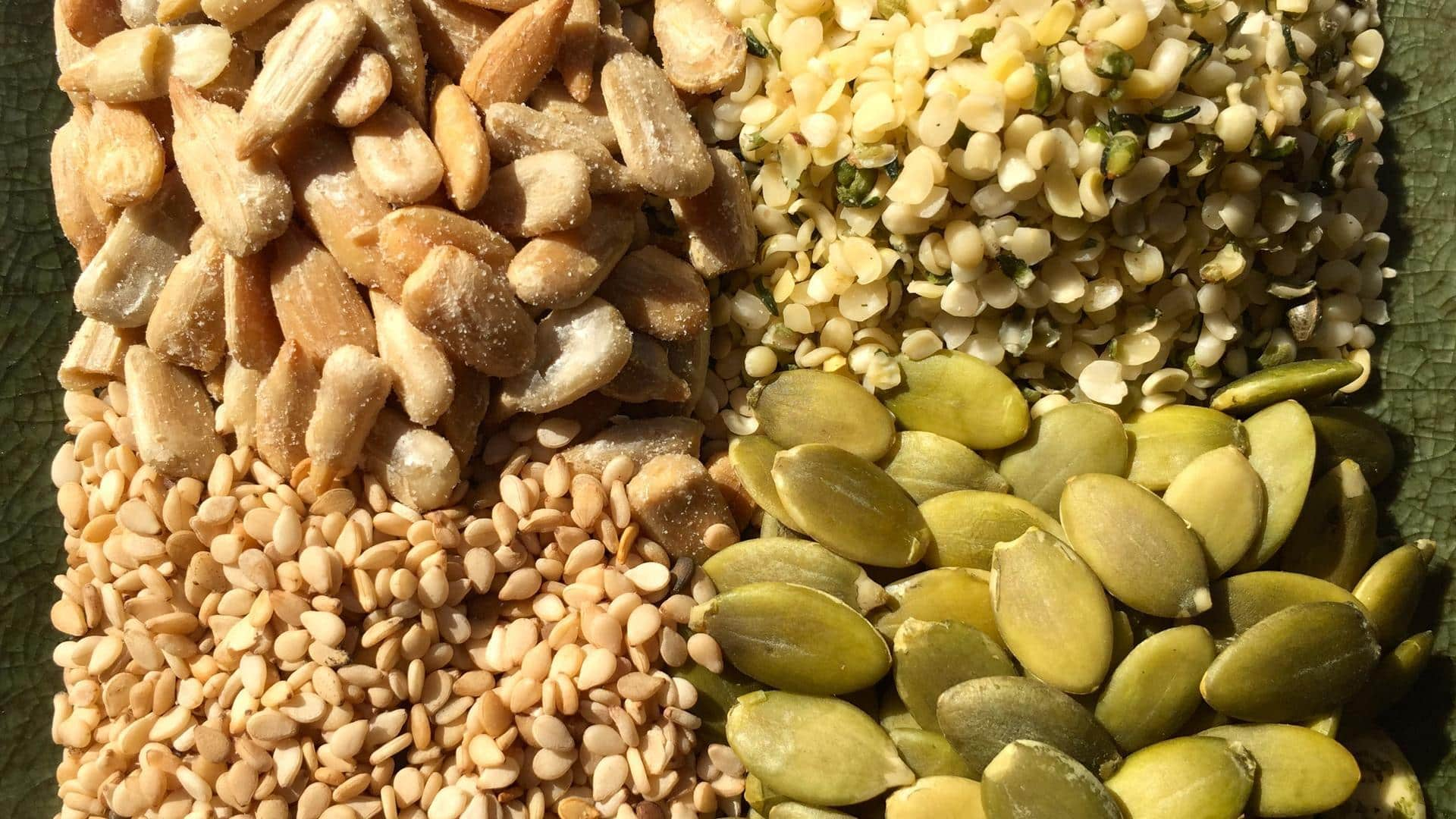
Sesame seeds v/s sunflower seeds: Comparing their nutrition
What's the story
Sesame and sunflower seeds are two popular options that provide a range of health benefits. Both the seeds are packed with nutrients that can boost your overall well-being. Knowing the nutritional profiles of these seeds can help you make informed dietary choices. Here's a look at the nutritional benefits of sesame and sunflower seeds, and how they can help you.
#1
Sesame seeds: A calcium powerhouse
Sesame seeds are famous for their high calcium content, making them an excellent addition to bone health. Just a tablespoon of sesame seeds can provide around 10% of the daily recommended calcium intake. This mineral is essential for keeping bones strong and preventing osteoporosis. Further, sesame seeds also contain sesamin, which may improve calcium absorption in the body.
#2
Sunflower seeds: Rich in vitamin E
Sunflower seeds are loaded with vitamin E, an antioxidant that protects cells from damage from free radicals. A one-ounce serving of sunflower seeds provides nearly 30% of the daily recommended intake of vitamin E. This nutrient is essential for maintaining healthy skin and eyes, and also supports immune function. Adding sunflower seeds to your diet can help you meet your vitamin E needs efficiently.
#3
Sesame seeds: High in healthy fats
Not just calcium, sesame seeds are also rich in healthy fats, especially polyunsaturated fats. These fats are essential for heart health as they help reduce bad cholesterol levels when consumed as part of a balanced diet. The presence of omega-3 and omega-6 fatty acids in sesame seeds makes them an excellent choice for those looking to boost their heart health naturally.
#4
Sunflower seeds: Packed with magnesium
Sunflower seeds are also a great source of magnesium, which is essential for over 300 biochemical reactions in the body. Magnesium helps regulate muscle function, blood pressure, and blood sugar levels. It also promotes energy production and protein synthesis. A one-ounce serving of sunflower seeds provides around 12% of the daily recommended magnesium intake, making them a great addition to any diet focused on maintaining optimal magnesium levels.